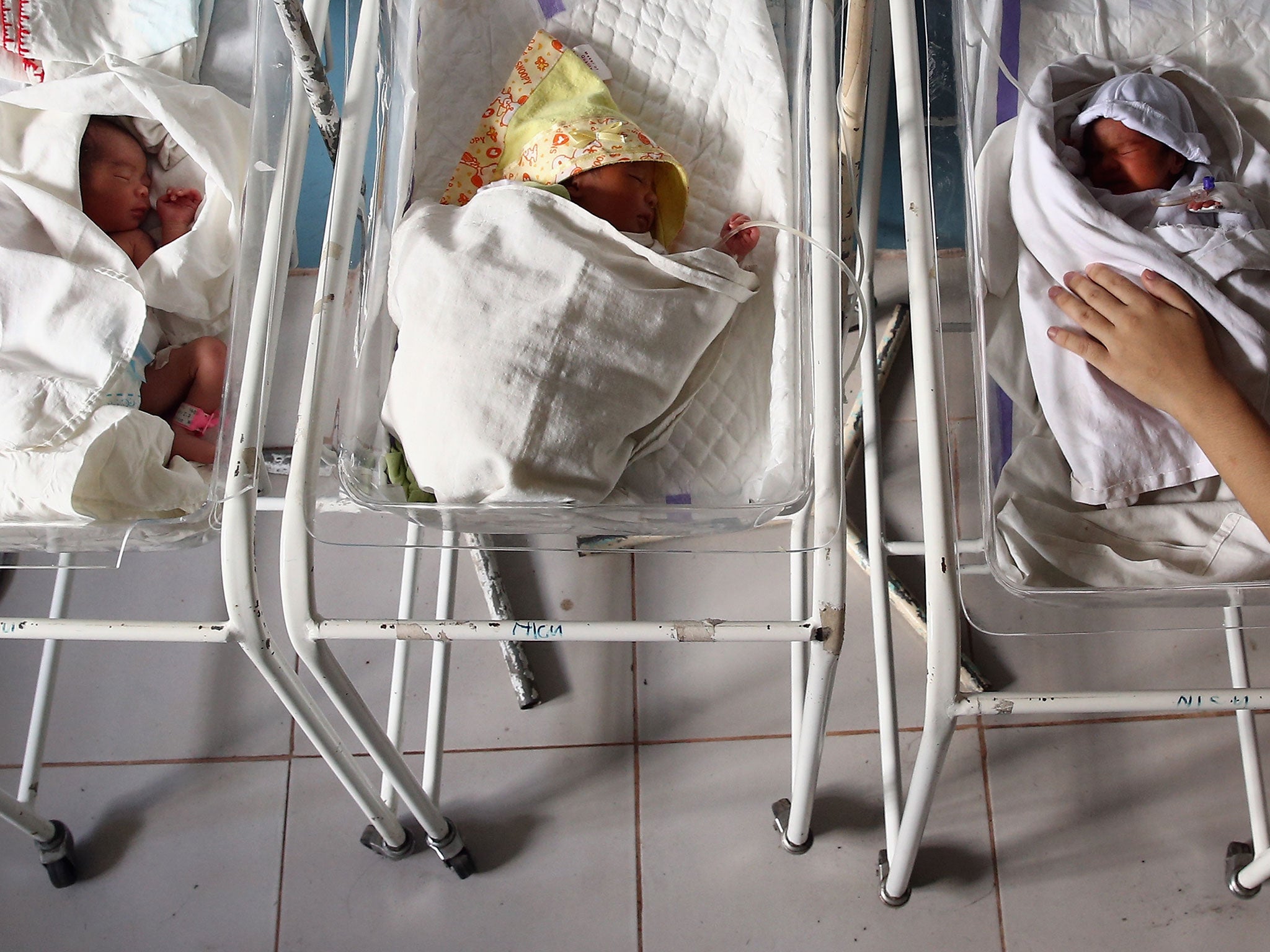Britain faces baby bust as birth rates plummet. Now is the time to adapt the economy
Increasing numbers of parents are delaying or shelving plans to have children as a result of the pandemic. This will exacerbate the nation’s demographic time bomb as the population ages, writes James Moore


The UK is set for a baby bust in 2021. In its annual economic predictions, PwC says that thanks to the pandemic the number of births could fall to their lowest level since records began.
Economic forecasters have a mixed record but there are good grounds for thinking the compilers of the professional service firm’s report, published this morning, are on to something.
A steady drip feed of data indicates that much of the developed world is facing a sharp decline in fertility. When Italian researchers conducted surveys in five European nations in April 2020, 58 per cent of the UK respondents who had been planning children said they had decided to postpone pregnancy. A further 19 per cent had scrapped the idea.
The results varied across Europe, but all five countries surveyed (the others were Germany, France, Italy and Spain) look set to see far fewer babies born in 2021 than in a normal year. The Brookings Institution in the US also found that the birth rate in that country, already at a 35-year low, could decline by a further 7-10 per cent over the coming year.
Back to the UK, where the Office for National Statistics (ONS) found that four in 10 people thought their household finances were likely to get worse over 12 months, also in April. A more recent PwC survey found one in five respondents expected to lose their jobs in the next year.
Prospective parents are often advised to forget that it’s “not a good time” to have children as a result of personal finances, job situation, etc because there’s “never a good time” so just go with it if you’re ready.
With a deadly virus raging, the health service under unprecedented strain, the country locked down, and the sort of support most new parents count on unavailable, it’s hardly a surprise that the pandemic has decisively altered the calculation. Now really is a very bad time to be having children.
The economic fallout from Covid, combined with concerns over access to healthcare as a result of the lingering effects of the pandemic on the NHS, are likely to extend postponements and may increase the numbers scrapping their plans.
The UK already has an ageing population, the economic challenges of which are beginning to be felt in areas such as health and social care. The pandemic threatens to greatly exacerbate that problem by shifting the country towards the ONS’s “low fertility” scenario.
It splits the population into bands based on age. What is most noticeable from a cursory glance at the projections is how the fours in younger age groups (referring to millions of people) start to become threes and the threes start to extend into the working age population as the numbers in older demographics grow.
This a poses a profound challenge to a nation whose government often seems more interested in cheap headlines than it is in addressing the challenges the country faces over the next few years.
Such challenges don’t, as a rule, respond well to quick fixes but funnily enough one does exist for this one. If you’re not producing enough young people of your own you can import them from places that are. It’s called immigration and… oh… right.
The current government is vehemently opposed to that particular get out of jail free card. Its preferred “Australian-style points based system” is specifically designed to deter the very people the nation needs to work – in, for example, the care sector.
The hostile environment created by a certain Theresa May while she was at the Home Office continues, albeit with different branding. It will be off-putting even to the skilled workers the government claims it is interested in encouraging.
Concerns about labour shortages have died down with unemployment surging. But they’ll be back in a few years if the UK’s pandemic-exacerbated demographic time bomb isn’t addressed. It will be accompanied by lower growth and a balance of payments crisis which will make debt hawks – already fretting about the UK’s borrowing – blanch.
So doom, doom! Well, not necessarily. While a more grown-up immigration policy would surely help, Hannah Audino, a PwC economist who contributed to the report, says there are still things that can be done to adapt the existing population to address the situation.
They include encouraging the upskilling, re-training, and lifelong learning that would help older people to participate productively in the workforce for longer.
Employers could also play a role (and the government is, obviously, a big employer).
Covid-19 means the focus of ministers is inevitably on the immediate crisis, and upon income support in particular. But the sooner they start thinking about addressing the aftermath the better. While the baby bust poses a significant challenge it doesn’t have to break the economy.


Join our commenting forum
Join thought-provoking conversations, follow other Independent readers and see their replies
Comments